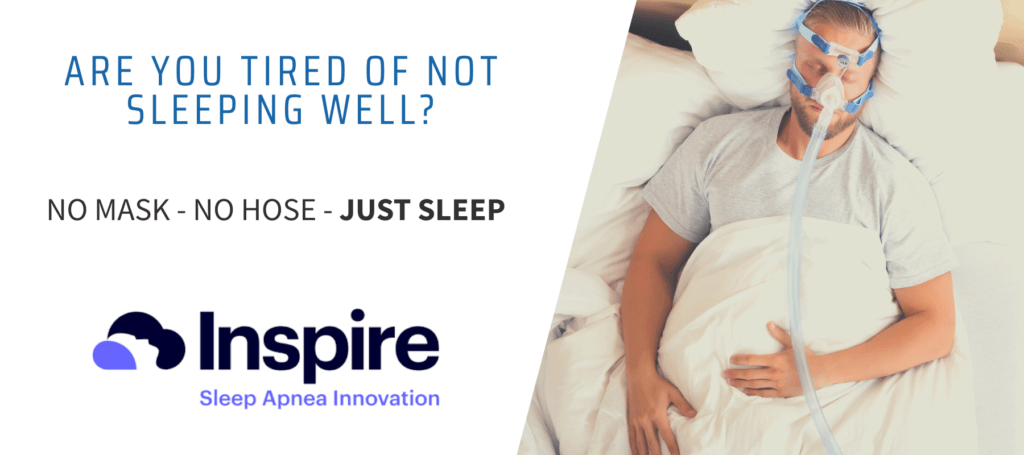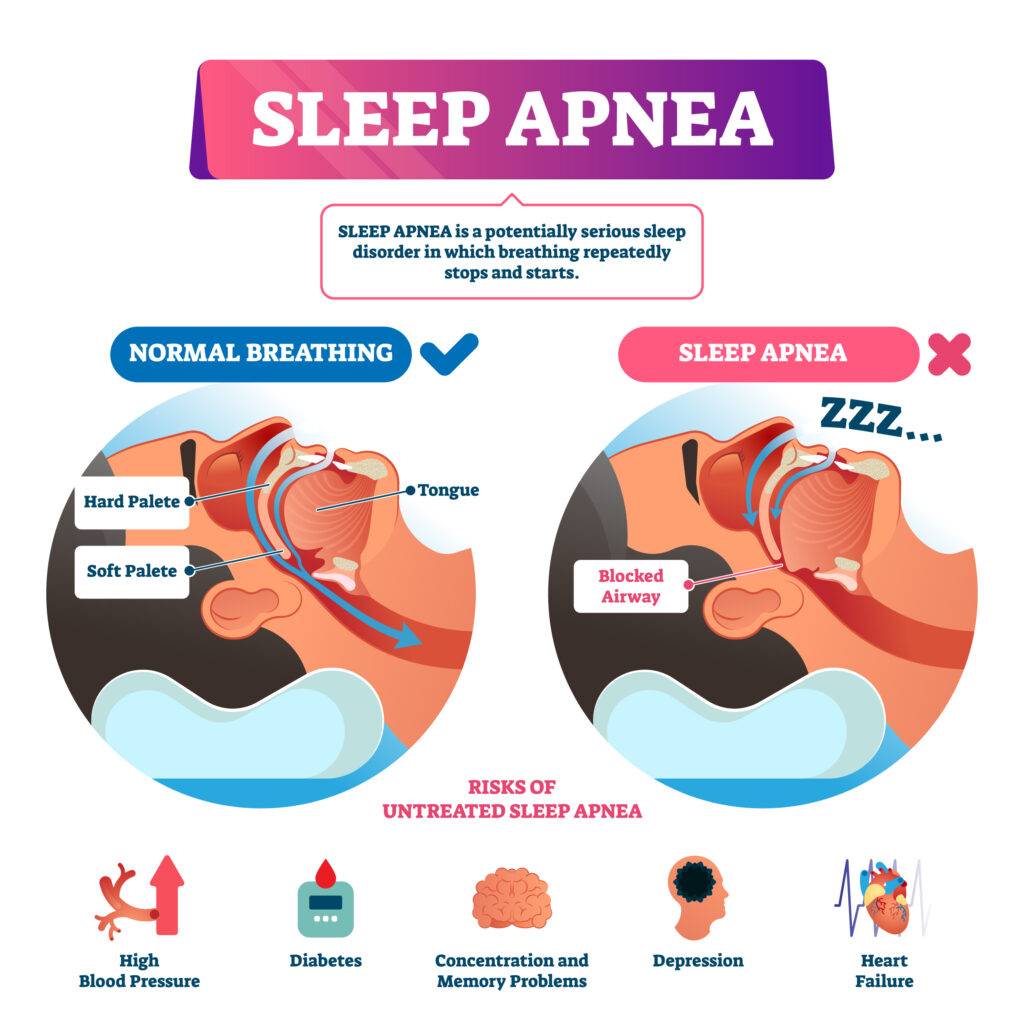
Sleep Apnea: Causes & Treatments
It’s hard to know what you’re doing while you are sleeping – after all, you’re asleep! However, it’s important to know if you are snoring or if your breathing pattern is being disrupted during the night. Often, people learn that they have sleep disorders because someone who was sleeping nearby told them that they snore or gasp for air as they sleep. Please don’t ignore these warning signs. You could have a condition called sleep apnea.
Symptoms of Sleep Apnea
Even if you haven’t been told you make funny sounds as you sleep, there are some daytime symptoms that may point to your disrupted sleep patterns. If you have any of these symptoms, we encourage you to schedule an appointment with our ear, nose and throat doctors in Phoenix.
- Headache
- Insomnia
- Fatigue
- Dry mouth
- Lack of concentration
- Irritability
Reasons for Sleep Apnea
Sleep apnea is related to your throat muscles and your brain. Your brain normally tells your throat muscles to engage so you can breathe. However, if there is a breakdown in this process, you may develop sleep apnea. There are two types of sleep apnea:
- Obstructive sleep apnea. This is the most common type of sleep apnea. It is caused when your throat muscles and tongue relax as you sleep which closes the airway in your throat. In order to take a breath, your brain alerts your body to wake and engage the throat muscles. This shocks your system and can cause you to make a gasping sound. This can occur many times per hour throughout the night so you’ll continually wake – even though you may not realize it. Understandably, you’ll feel tired the next day because your sleep was so interrupted throughout the night.
- Central sleep apnea. This type of sleep apnea is often associated with diseases such as obesity, stroke, Parkinson’s, etc. In this situation, the communication between your brain and throat muscles is interrupted. Breaths can become shallow and there may be pauses that lead to gasps for air.
It is possible for you to have a condition called complex sleep apnea where you are experiencing both obstructive and central sleep apnea.

Treatments for Sleep Apnea
CPAP Machine
Continuous positive airway pressure (CPAP) therapy is administered by wearing a mask as you sleep. The mask is connected to a machine that delivers constant air pressure so your throat muscles do not relax and close. This treatment can be frustrating and difficult to tolerate at first, but as patients get used to the treatment, they can start to feel better overall.
Inspire® Upper Airway Stimulation
If you are unable to tolerate the CPAP machine, we may recommend Inspire® Upper Airway Stimulation therapy for some sleep apnea patients. This is an FDA-approved therapy for obstructive sleep apnea. Inspire therapy involves the surgical implantation of 3 devices that work inside your body to deliver mild stimulation to airway muscles. Patients are in control of this system. When turned on at night, the system senses your breathing and stimulates the base of the tongue and tissue in the throat in order to keep the airway open as you sleep – without masks and hoses connected to a machine.
You Have Questions: We Have Answers
When you come in for your appointment, we’ll cover commonly asked questions about sleep problems. We are trained to help answer such questions as:
- Why do I snore?
- Is snoring a serious problem?
- Why do I feel so tired during the days?
- Can poor sleep interfere with my work?
- What do CPAP machines feel like?
- Does the Inspire surgery hurt?
- And many more
More importantly, we can offer treatments for relief.
Our team at Biltmore ENT is ready to help you find out if you have sleep apnea in Phoenix. Contact our office today at (602) 956-1250 or click here to request an appointment.

